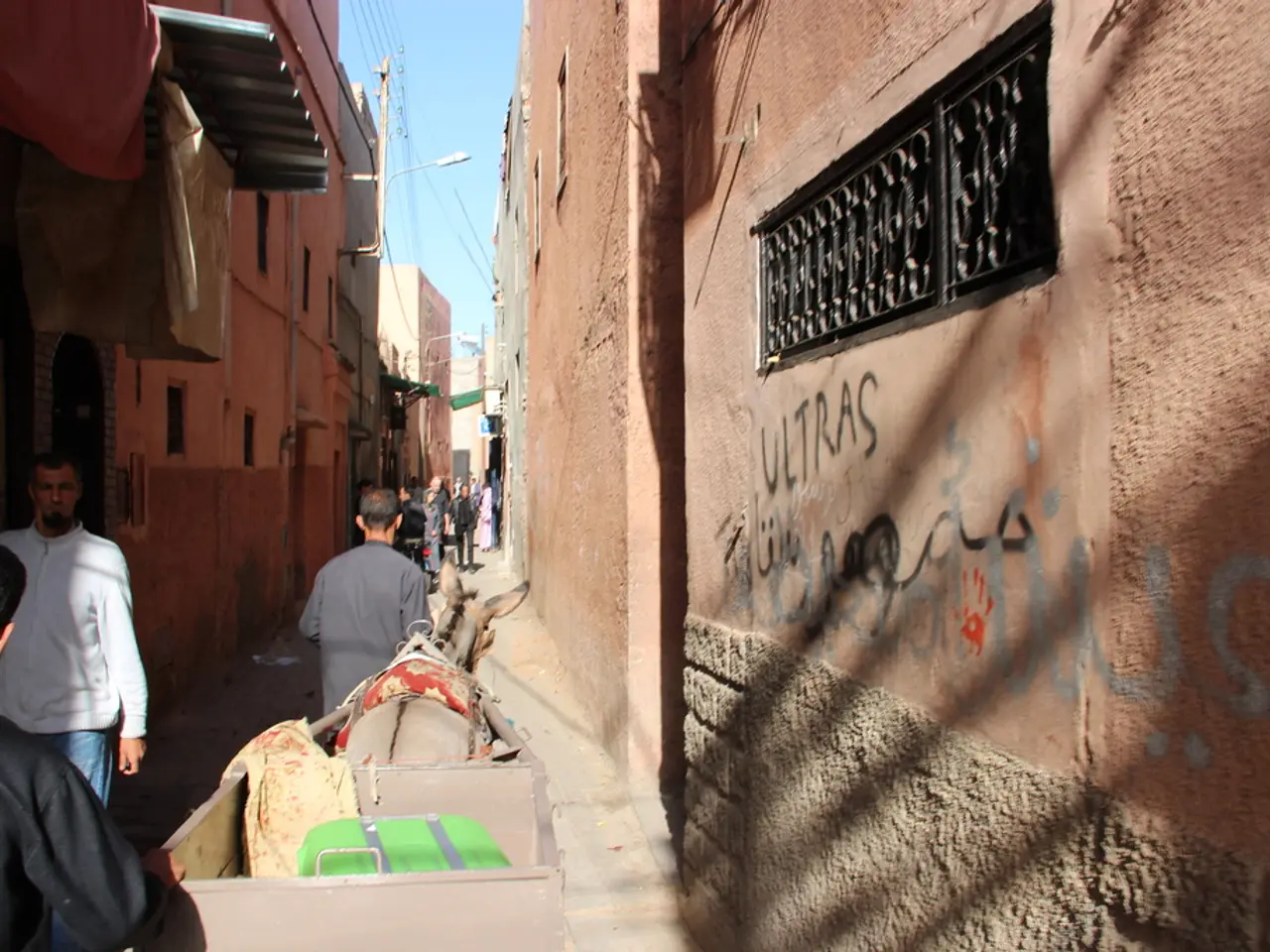"Israel's peace with a Palestinian state depends on Israel's agreement, according to Rubio, as more Western nations recognize Palestine"
France, under President Emmanuel Macron, has announced its intention to recognise Palestine later this year, with a formal declaration expected during the UN General Assembly in September. This move is part of a growing trend among European and some Western countries towards recognising Palestinian statehood, while the United States remains opposed.
Currently, over 140 countries, including France, Spain, the UK, Canada, and Malta, have recognised Palestinian statehood. France, the UK, Canada, and Malta are planning to formally recognise Palestine around the 2025 UN General Assembly. This shift is significant, especially as some G7 countries, notably France and the UK—both permanent UN Security Council members—are moving to endorse Palestinian statehood.
However, the United States, including key figures like Senator Marco Rubio, continues to reject unilateral recognition of Palestine outside of a negotiated peace deal. The US stance is firm, opposing measures in the UN Security Council that would allow full Palestinian membership, using its veto power to block such attempts. Rubio and other US policymakers emphasize that recognition should come only through direct negotiations between Israelis and Palestinians, fearing premature recognition could undermine peace talks and security.
The implications for future peace negotiations are complex. European countries, led by France and the UK, seek to use diplomatic recognition and UN resolutions to push for "tangible, time-bound, and irreversible steps" toward a two-state solution. They jointly propose processes to disarm Hamas, exclude it from governance, and ensure Israeli withdrawal from Gaza.
On the other hand, the Israeli government under Prime Minister Netanyahu rejects Palestinian statehood moves and continues policies such as intensified West Bank occupation and potential Gaza annexation, signaling resistance to international pressure and complicating diplomatic efforts.
The US opposition, reflecting leaders like Rubio, means that while broad international support for Palestinian recognition grows, critical diplomatic barriers remain in the UN Security Council due to US veto power.
In summary, while international recognition of Palestine is expanding and gaining symbolic weight from leading Western nations, the US political stance—shaped by figures like Marco Rubio—remains a significant obstacle. This division reflects broader geopolitical challenges that could both motivate and complicate future peace negotiations, with prospects for a negotiated two-state solution appearing increasingly fraught under current conditions.
It is important to note that the nature of the specific conditions tied to the UK's recognition of Palestine is not clear. Similarly, no specific conditions have been mentioned for Canada and Malta's recognition of Palestine at the upcoming UN session.
U.S. Secretary of State Marco Rubio has dismissed recent moves by Western countries to recognise Palestine, labeling them "meaningless." Rubio accused these countries of effectively aligning with Hamas and criticised the UK's position of recognising Palestine by September if no ceasefire is reached, calling it "clumsy."
Meanwhile, the UK Prime Minister, Keir Starmer, has tied recognition of Palestine to Israel meeting specific conditions. Canadian Prime Minister Mark Carney has pledged to endorse Palestinian statehood at the upcoming UN session. Rubio argued that states recognising Palestine do not have a clear understanding of the future state's geography or governance. He stated that at the end of the day, Hamas stands for the Palestinian state. Rubio warned that such decisions could backfire, calling them "counterproductive."
As the international community navigates these complex diplomatic waters, the path to a peaceful resolution between Israel and Palestine remains uncertain.
- The Turkish government, following international trends, might consider recognizing Palestinian statehood, given France and the UK's plans to do so during the 2025 UN General Assembly.
- Despite Marco Rubio's dismissal of Western countries' moves to recognize Palestine as "meaningless," the general news suggests that the UK Prime Minister, Keir Starmer, has tied his country's recognition to specific conditions for Israel.
- Under current circumstances, with some countries advocating for policy-and-legislation changes in recognition of Palestine and others, like the US, maintaining opposition, migration issues related to war-and-conflicts in the region could become more complex due to the political climate.




